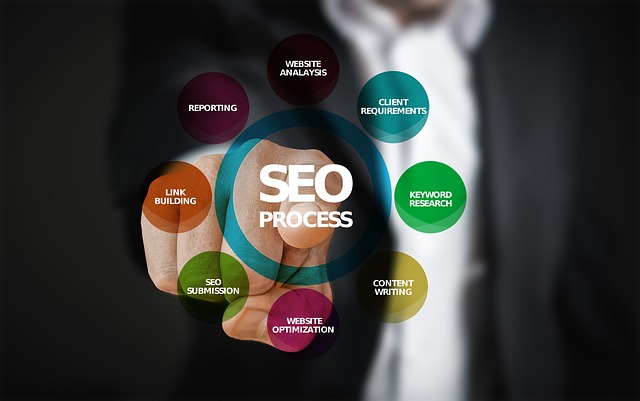Table of Contents
Search engine optimization indexing is important for online visibility. It’s the process that determines if your web pages show up in Google search results. This has a direct impact on your website’s organic traffic.
This article helps us learn everything about SEO indexing. It covers basic concepts and advanced topics in detail. We’ll cover best practices and common issues. Also, we’ll see how tools like Rapid URL Indexer can improve your indexing.
By SEO indexing tools, we must grow your website visibility in Google Search Console.
What is SEO indexing?
SEO indexing is the process in which we add web pages to the Google search engine. This step is very helpful to get organic traffic from the search console. Because when we add pages in the search console, they read it and crawl their page. For example, if a website has 1000 pages but 500 pages are not indexed i google. This means the website has less organic traffic than its pages due to fewer indexed pages.
How does SEO indexing differ from crawling?
SEO indexing and crawling are both two different things in Search results.
Crawling: when search engine bots crawl their web pages, they collect information.
Indexing: This is when search engines save information in their databases for future use.
Example:
Crawling: This happens when search engines visit your homepage. They then follow links to other pages on your site.
Indexing: Search engines analyze your website’s pages and collect information.
Why Is SEO indexing important for website visibility?
SEO indexing matters. It affects the ease with which people can find your website. This helps your site show up in search results. Without proper indexing, your content is invisible to search engines. Only indexed pages can rank for similar queries. They also bring organic traffic to your site.
What are the key components of SEO indexing?
The main components of SEO indexing are:
- Crawlability: To ensure that search engines can access and navigate your website.
- Content Quality: Creating valuable, unique content that helps search engines index.
- Technical Optimization: Use proper meta tags and HTML structure.
- Site Structure: It organizes your website content in a logical, easy-to-navigate manner.
- XML Sitemaps: They provide a roadmap to the search engine.
Each of these components is very important. A good website structure helps search engines find and index your content better.
How Can Rapid URL Indexer help?
Rapid URL Indexer helps to speed up your website. The indexing process submits your URLs to search engines without any intermediaries. It helps your pages get found and indexed in a timely manner. This boosts your chances of ranking higher in search results.
How does the SEO indexing process work?
The SEO indexing process includes search engine crawlers, content evaluation, and database storage. Here is a simple breakdown of how it works:
What role do search engine crawlers play in indexing?
Search engine crawlers, known as spiders or bots, find and access web pages. They click links from one page to another. They read your blog content. This helps us collect information. Next, the system sends this data to the search engine. The search engine processes it and may index it.
Here is how crawlers work:
- They find URLs through links or sitemaps.
- They visit each URL of the site and read the page content.
- They follow their links to other pages on the site.
- They send the collected data back to the search engine.
How do search engines decide which pages to index?
Search engines decide which pages to index based on several factors:
- Search engines index original, valuable content with greater ease.
- Page load speed: It helps crawlers load pages with greater efficiency.
- Mobile-friendly pages receive priority.
- Internal and external links help people find your pages. Well-linked pages seem more important.
- User engagement: Pages that are engaged to their audience are considered more valuable.
- Content that answers common user questions is more likely to be indexed.
- Follow search engine guidelines: Pages with quality content are more likely to be indexed.
Pages that meet these criteria are more i chances to be indexed and ranked in search results.
What Is the difference between indexing and ranking?
- Indexing: Indexing is the process by which a search engine adds your page to its database. It is like categorizing the catalog of libraries.
- Ranking shows how your web page appears in search results. It helps users find your page for certain questions and queries. It is being placed on a specific shelf in the library that are based on popularity and relevance.
Indexing comes first. Then, ranking relies on factors such as relevance, authority, and user experience.
What are the best practices for SEO indexing?
To improve your website’s indexing, follow up these best practices:
How can you optimize your website’s structure for better indexing?
You can optimize your website’s structure by:
- Creating a clear hierarchy: Arrange your content by importance. Place key information closer to the homepage.
- Use clear URLs that describe the page content. For example, use example.com/seo-guide instead of example.com/page123.
- Implementing internal linking: These links connect related pages. They help search engines understand your content better.
- Minimizing clicks: To make sure that the number of pages is within 3-4 clicks from the homepage.
- Linking key pages from the homepage shows search engines that these pages matter.
Using breadcrumb routes helps both clients and web crawlers understand your webpage’s structure.
A very organized site makes it all the more simple for web search tools to slither and list your content.
What role does an XML sitemap play in web optimization and ordering?
An XML sitemap is like a guide for web crawlers. It categorizes every page on your site. This helps web search tools to find and crawl your content with ease.
Key benefits of an XML sitemap:
- Search engines can locate new pages with ease.
- Better crawl efficiency: Crawlers target key pages and skip less important ones.
- Better site structure: Sitemaps show how pages connect and what content types they have.
A sitemap doesn’t guarantee indexing. But, it does help your pages get found and indexed in a shorter time.
How important are internal links for indexing?
Internal links are very important for indexing. They help search engines discover and understand your website’s structure. Linking related pages helps crawlers find their way. This ensures that all your important content gets indexed.
Benefits of internal linking:
- Improved crawl efficiency: Crawlers can navigate your site with ease.
- Hierarchy signaling: Links show the importance of pages.
- Link equity distribution: Internal links spread ranking power throughout your site.
- Descriptive anchor text helps search engines grasp what the linked page is about.
A good internal linking structure can grow the visibility of deep search pages on your site.
What impact do meta robots tags have on indexing?
Meta robots tags are HTML tags that give instructions to search engine crawlers. Common meta robots tag directives:
- index: It tells search engines to index the page.
- They help to search engines not to index the page.
- Follow: they help to search engines to follow the links on the page.
- They help to search engines not to follow the links on the page.
How to Use Meta Robots Tags Purposefully
Meta robots tags help you control which web pages search engines index.
For example:
- Use noindex for pages you don’t want indexed. This includes duplicate content, copied content, and low-value pages, like tag archives.
- Use index for your important pages to make sure that they will seen in search results.
Be careful with these tags. They can hide important pages from search engines by accident. Always double-check your settings to avoid mistakes.
What Are Common SEO Indexing Issues?
Your pages might not get indexed. This can lower your website’s visibility and traffic. Here are some common problems and how to fix them:
How do you identify indexing problems?
You can spot indexing issues by:
- Using Google Search Console: Check the “Index Coverage Report.” This indicates which pages the system has indexed and which pages have errors.
- To check which pages Google has indexed, type site:yourdomain.com in the search bar.
- Check your XML sitemap. Compare the number of URLs in it to the number of pages indexed. If there is a huge difference, you might have an issue.
- Check your traffic. If it drops suddenly, some pages may not get indexed.
- Using crawling tools like Screaming Frog helps find technical issues that block indexing.
Checking for these issues daily or every other day helps you spot problems early. This keeps your site visible in search results.
What Causes Pages to Not Index?
Pages that may not get indexed for several reasons:
- Robots.txt Issues: If your robots.txt file is set up wrong, search engines can’t crawl or index your pages.
- Noindex labels: On the off chance that a page has a noindex tag, web search tools won’t record it.
- Web search tools avoid recording pages with low-quality or duplicate content.
- Slow page load times can hurt your site. If your pages take too long to load, search engines might ignore them.
- Poor interior connecting: If your pages aren’t linked well, search engines might not find them.
- Server mistakes: We won’t list pages that show blunders (like 404 or 500).
- Standard labels: If a page focuses to one more page as the “principal” rendition, web crawlers could disregard it.
- New content: Sometimes, it takes time for search engines to invent and index new pages.
How to Fix Indexing Issues
Here is how you can solve common indexing problems:
- Check your robots.txt file: Make sure it will not block important web pages.
- Remove no-index tags: To make sure that your key or important pages do not have non-index tags.
- Improve content quality: Add unique, valuable content to low-quality pages.
- Fix internal links: Make sure all important pages are linked from your homepage or other important pages.
- Speed up your site: Optimize your site for faster loading times.
- Fix server errors: Resolve any 4xx or 5xx errors on your site.
- Submit your sitemap: Use Google Search Console to submit your XML sitemap and request indexing.






Comments (2)
spunky
Featured glory! Spotlight creations in Sprunki Swap Showcase!
Breezedoc Free Deals: Get Access to Special Offers Right Now - Fantasy Studio
[…] Access to Special Offers Users can use high-quality, legally binding signature capabilities with Breezedoc Free Deals. Users can save time and effort by using the tool’s contract and agreement templates. In […]